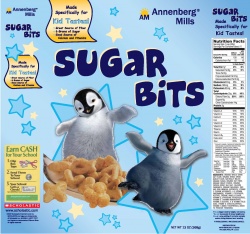
Shrek, Lightning McQueen influence kids’ food choices
By Food in Canada staff
Food Trends Research & DevelopmentA study finds that associating licensed characters with healthy foods might actually encourage kids to eat them
Chicago – A study may have found a way to influence children to make healthy snack choices: associate the healthy product with beloved media characters.
The study’s researchers, from the University of Pennsylvania, say using trade and licensed spokes-characters is a popular practice in child-directed products. The characters help children identify and remember those products.
The researchers go on to explain that children remember visual cues more easily than they do verbal cues. So a visual, such as Shrek, will help them remember what they see in advertisements.
The researchers studied 80 children between the ages of four and six to see if in fact using a licensed spokes-character on food packaging affected children’s taste assessment of the cereal.
Children were shown boxes of cereal labelled either Healthy Bits or Sugar Bits, with some boxes featuring media characters and some without.
Having seen only the box, participants were asked to rate the taste of the cereal on a scale of one to five.
Almost all the children reported liking the cereal, however, those who saw a popular media character on the box reported liking the cereal more than those who viewed a box without a character on it.
Additionally, those who sampled the cereal named Healthy Bits reported enjoying the cereal more than children who were given the same cereal under the name Sugar Bits.
Children receiving the cereal with the name Sugar Bits in a box with no characters on it reported being significantly less satisfied with the taste than those in the other three groups.
No significant differences were found among children in the Healthy Bits group based on the presence or absence of characters on the box.
The study, which was published in the March issue of Archives of Pediatrics & Adolescent Medicine, found that media and cartoon characters affect children’s assessment of food products and influence the opinions of children about their eating preferences.
“Messages encouraging healthy eating may resonate with young children,” say the authors, “but the presence of licensed characters on packaging potentially overrides children’s assessments of nutritional merit.”
Print this page
